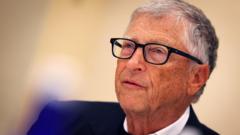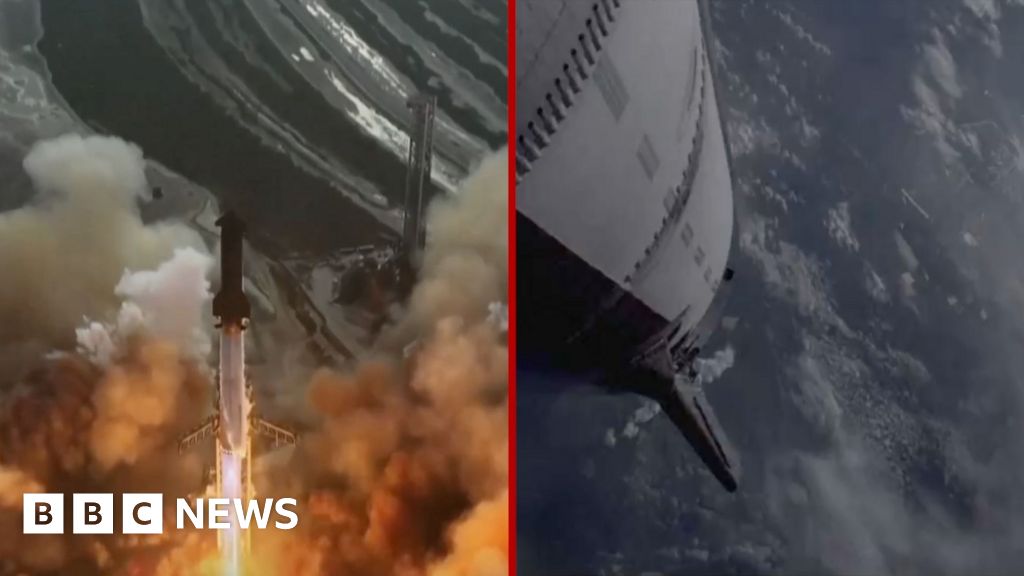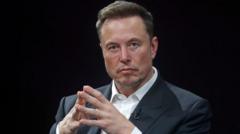In a recent blog post, Microsoft co-founder Bill Gates announced his ambitious plan to donate 99% of his fortune within the next two decades, significantly increasing his charitable efforts through the Bill & Melinda Gates Foundation. Gates, now 69, expressed a desire to ensure that when he dies, he will not be remembered merely for accumulating wealth. "People will say a lot of things about me when I die, but I am determined that 'he died rich' will not be one of them," he stated.
The foundation, which has already distributed about $100 billion (£75 billion) for health and developmental initiatives, is expected to allocate an additional $200 billion by 2045, contingent on market conditions and inflation. This dramatic shift follows Gates’ inspiration from Andrew Carnegie’s 1889 essay, "The Gospel of Wealth," emphasizing the moral duty of the affluent to contribute positively to society. "The man who dies thus rich dies disgraced," Gates echoed, reaffirming his commitment to philanthropy.
Gates' unprecedented decision to give away the majority of his wealth could still leave him as a billionaire, considering his current net worth of approximately $108 billion, positioning him as one of the richest individuals globally. Through visual aids in his blog post, he outlined a timeline reflecting his financial journey, with a prominent hand-drawn arrow signaling a dramatic reduction in wealth by 2045.
Despite this philanthropic ambition, Gates has faced criticism. Detractors argue that the Gates Foundation allows him to navigate tax liabilities while exerting significant influence over global health policies. In his post, he detailed three pivotal goals for the foundation: tackling preventable diseases, eradicating infectious illnesses such as malaria and measles, and alleviating poverty for millions.
In light of ongoing global challenges, Gates criticized wealthier nations like the U.S., U.K., and France for slashing their foreign aid budgets, raising concerns over the potential impacts on vulnerable populations. He firmly asserted the foundation's role in supporting efforts to uplift impoverished communities.
Gates also directed pointed remarks towards Elon Musk, accusing him of contributing to avoidable deaths through budget cuts to U.S. aid initiatives. In the Financial Times interview, he claimed, “The picture of the world's richest man killing the world's poorest children is not a pretty one,” addressing the consequences of funding reductions.
As discussions around wealth and responsibility continue to evolve, Gates' intentions serve to reignite debates on effective philanthropy, the responsibilities of billionaires, and the geopolitical focus on health and poverty alleviation efforts.
The foundation, which has already distributed about $100 billion (£75 billion) for health and developmental initiatives, is expected to allocate an additional $200 billion by 2045, contingent on market conditions and inflation. This dramatic shift follows Gates’ inspiration from Andrew Carnegie’s 1889 essay, "The Gospel of Wealth," emphasizing the moral duty of the affluent to contribute positively to society. "The man who dies thus rich dies disgraced," Gates echoed, reaffirming his commitment to philanthropy.
Gates' unprecedented decision to give away the majority of his wealth could still leave him as a billionaire, considering his current net worth of approximately $108 billion, positioning him as one of the richest individuals globally. Through visual aids in his blog post, he outlined a timeline reflecting his financial journey, with a prominent hand-drawn arrow signaling a dramatic reduction in wealth by 2045.
Despite this philanthropic ambition, Gates has faced criticism. Detractors argue that the Gates Foundation allows him to navigate tax liabilities while exerting significant influence over global health policies. In his post, he detailed three pivotal goals for the foundation: tackling preventable diseases, eradicating infectious illnesses such as malaria and measles, and alleviating poverty for millions.
In light of ongoing global challenges, Gates criticized wealthier nations like the U.S., U.K., and France for slashing their foreign aid budgets, raising concerns over the potential impacts on vulnerable populations. He firmly asserted the foundation's role in supporting efforts to uplift impoverished communities.
Gates also directed pointed remarks towards Elon Musk, accusing him of contributing to avoidable deaths through budget cuts to U.S. aid initiatives. In the Financial Times interview, he claimed, “The picture of the world's richest man killing the world's poorest children is not a pretty one,” addressing the consequences of funding reductions.
As discussions around wealth and responsibility continue to evolve, Gates' intentions serve to reignite debates on effective philanthropy, the responsibilities of billionaires, and the geopolitical focus on health and poverty alleviation efforts.


















